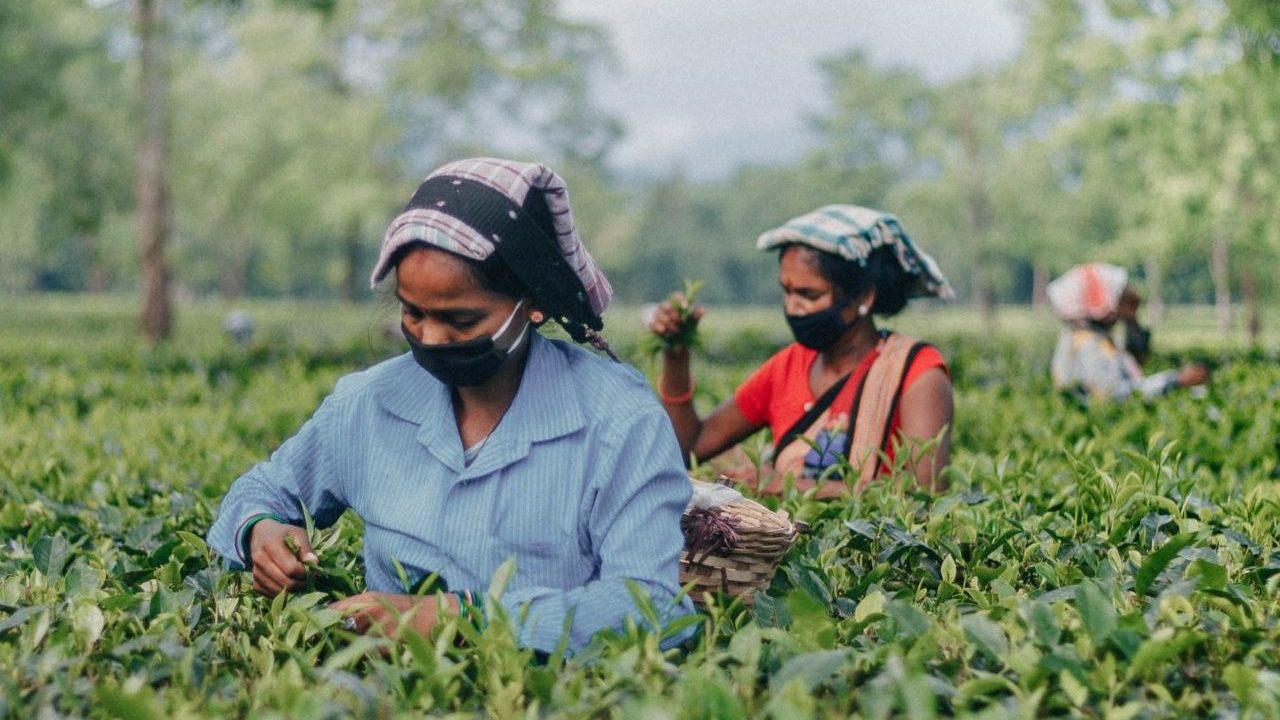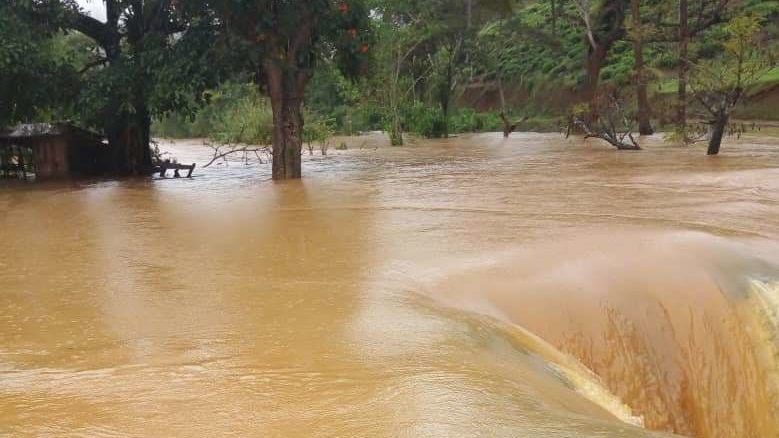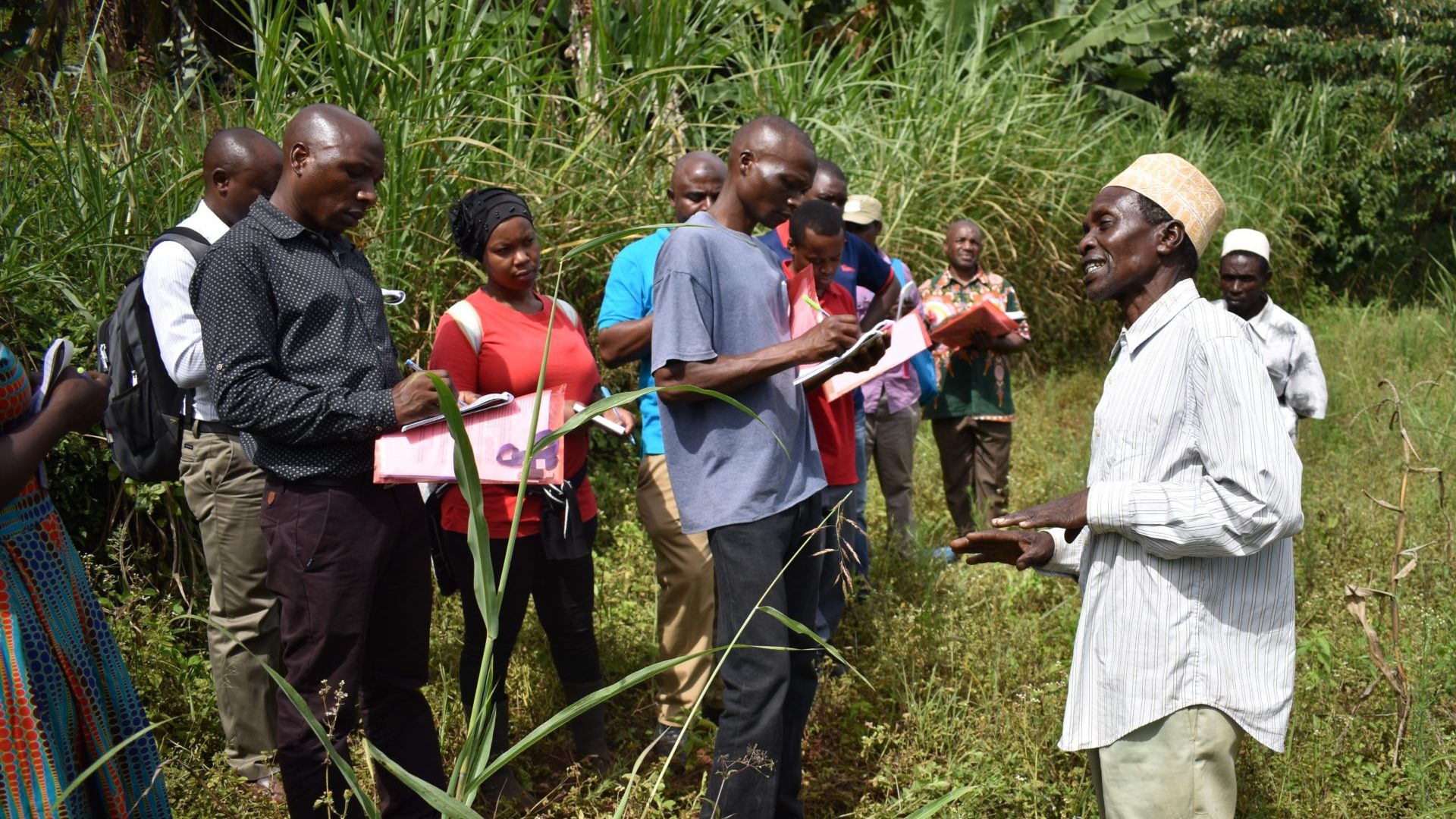By Dr Stephen Whitfield, University of Leeds
In the GCRF-AFRICAP programme, we are using scenarios and modelling approaches to envision potential futures for food systems in southern Africa. The future timelines for these exercises – 2050 and beyond – mean that they need not be constrained by today’s status quo. Instead, they are an opportunity to imagine radical transformation in the structures and systems that shape food production and consumption – the kinds of transformation that are needed to meet the Sustainable Development Goals and maintain a safe and just planet for future generations.
However, it’s essential that the narratives we develop about the future aren’t divorced from the experiences and realities of the past and present – striking the right balance between reality and radical transformation is critical for success.
This is what our work under the Food Systems Research theme of the AFRICAP programme sets out to do. Drawing on expertise from our diverse team, we are building a multi-faceted, cross-disciplinary picture of food systems in Malawi, South Africa, Tanzania and Zambia to ensure that our visions of the future are realistic and sensitive to a historical and ongoing trajectory of change.
Below, I highlight some of this activity, and set out five reasons why this contemporary and historical evidence base is so important.

1. Understanding what works, where, for whom…and why!
Technologies and interventions in African food systems, such as genetically modified foods or conservation agriculture, are often heralded as being a productive, “climate-smart” means to food security and poverty reduction. They hold within them the promise of broad scale transformation. But it is important that we interrogate and build the evidence bases that underpin such claims with care, ensuring we take time to understand what works, in what context, for whom, and importantly, why.
For example, work under GCRF-AFRICAP on conservation agriculture in Malawi is helping to demonstrate some of the benefits that practices of no-tillage, crop rotations and organic soil cover can have in improving soil quality and crop root structure, thereby improving agricultural resilience to climate extremes. However, our research also explores how these conservation agriculture impacts differ across different soil and climate conditions and reveals some of the factors that limit farmers’ adoption of these practices. In essence, it’s painting a picture of where and for whom conservation agriculture works. And, importantly, by engaging farmers in the process through participatory research, e.g. in analysing the impacts to conservation agriculture on soil properties, it is helping us to understand why this nuanced picture emerges.
The ‘why’ is an essential part of the evidence base. Without it, we can’t accurately and realistically project forward, to make considered assumptions within models of how, where, and under what conditions we might realistically expect technological changes (such as the uptake of conservation agriculture practices) to materialise.
2. Learning from analogous shocks and extreme events
Within the scenarios activities that we conducted across all four of our focal countries, climates, politics, and markets were identified as important drivers of future food system change. But these drivers are not distant nor hypothetical. Indeed, recent and past events provide important windows into the impacts of uncertainties, shocks and extremes on African food systems. Severe flooding in the East Usambaras in Tanzania in 2019 and the current Covid-19 pandemic are arguably analogous of some of the future shocks that we might anticipate occurring (likely with increased frequency and intensity) in food systems of the future.

Research under GCRF-AFRICAP is helping to highlight some of the ways in which food systems in our focal countries have, and some of the ways in which they have not, been resilient to these shocks, and how they have impacted the most vulnerable members of society. If future SDG-compliant systems are to be realised, then they must be structured and have the necessary support systems and safety nets to protect food security and livelihoods. These analogous contemporary events can reveal some of the critical limitations that must be prioritised within future systems.
3. Observing legacies and how learning and change come about
Our ideas of future food systems and systemic change do not begin from a static baseline. A long and contested history of ideas, philosophies, knowledge sharing, and intervention represent a complex legacy that continues to shape ever-changing food systems in southern Africa.
Research under GCRF-AFRICAP has showed some of the ways in which a historical legacy of investment and activity in crop breeding is continuing to direct priorities for seed systems in the region, and the ways in which donor driven interventions are affecting farmer innovation, learning and trust around agricultural practices. The reality is that future innovations are inevitably associated with a degree of historical lock-in that affects both where investment and research and development activity is concentrated, and the extent to which farmers, or end users, engage with and trust these innovations. Observing and understanding these legacies, and the ways in which innovation and change happen both as a result of, and in some cases in spite of or in opposition to them, is important not only for envisaging realistic future change, but contributing to this change in ethical and responsible ways.
4. Highlighting and responding to injustice
There is not only a historical legacy of agriculture and food system intervention that exists in our focal countries, but also a broader and deeply rooted political history of colonialism and development that, particularly as a UK government-funded research programme, it is important for us to be conscious and cognisant of. It is a history that has shaped contemporary inequalities and power dynamics. It continues to play out in the lived experiences of food producers and consumers, and in the politics and donor-driven agendas and activities of agriculture and food system development. As UK-funded researchers, our roles and our work is inevitably contributing to this landscape and, as such, we have a responsibility to have a legacy that is positive and that recognises and responds to injustice.
A new project, led by GCRF-AFRICAP researchers is aiming to synthesize learning from across GCRF-funded projects and promote a social equality and justice framing of, and prioritisation within, agriculture and food system transformation. This will draw on critical analysis of diverse case studies of transformation and use these as basis for developing new approaches and metrics to evaluating change from a justice perspective.
5. Co-producing knowledge and establishing participation
Grounding our work in GCRF-AFRICAP in the realities and lived experiences of contemporary food system stakeholders is essential to bringing together the multiple knowledges, values and perspectives that exist across the food system. Within the programme, this ranges from the involvement of farmers and agricultural extension officers in the evaluation of land management practices, weather forecast indicators, aflatoxin risks, and crop pests and diseases to the involvement of crop breeders in exploring ways to adopt climate model projections within breeding programmes, and to the involvement of policy makers and district authorities in lesson sharing around climate smart agriculture. This participation is important both for its role in improving the quality and richness of evidence that is generated, and improving its relevance, legitimacy and trustworthiness for those for whom it might have the most direct application and value.

Many of the pathways and processes of change that will bring about transformed food systems start with incremental changes in the here and now, and these will only materialise if people are involved, believe and trust in those changes, and feel motivated to make them happen.
Shaping the future of food systems
Across the GCRF-AFRICAP programme, the observation of and engagement of stakeholders within the contemporary food systems is an important step in our ambition for transformed systems that meet the Sustainable Development Goals. This is about much more than establishing a baseline of evidence for such change. It is about recognising that these systems are dynamic and constantly changing in response to a complex combination of drivers.
Historical changes inevitably shape future pathways and possibilities, in both desirable and undesirable ways. They affect what does and does not work, for whom and why, and have produced knowledge, experiences and lessons that can strengthen our evidence bases and give us a window into what might happen in the future.
As researchers it is our role, and responsibility, to contribute to a productive, diverse and growing knowledge base; and to learn from contemporary and historical contexts and experiences. Without that learning and understanding, there is a danger that our visions of, and efforts towards, food system transformation could perpetuate vulnerabilities and injustices into the future.
About the Author

Dr. Stephen Whitfield is an associate professor in climate change and food security at the University of Leeds, and the Zambia country coordinator for the AFRICAP programme.
He is directly involved in research on climate resilient seed systems, the diffusion and adoption of agricultural innovations, and conservation agriculture. Stephen also leads related research projects on agricultural climate services, and on agriculture and food system transformation and justice. Find out more
